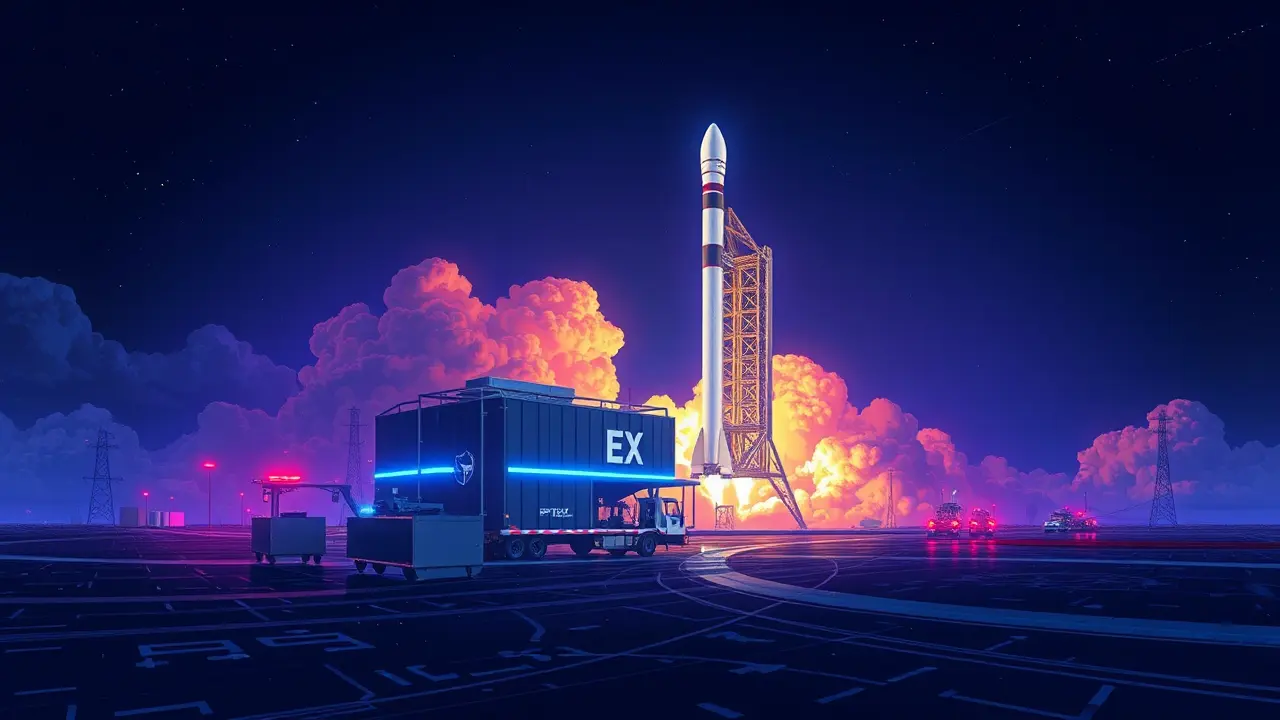SpaceX Forms Volunteer Fire Department at Starbase
In a move that feels ripped from the pages of a Robert A. Heinlein novel, SpaceX has officially established its own volunteer fire department at Starbase, the company's burgeoning launch facility and de facto company town in Boca Chica, Texas.This isn't merely about installing a few extra fire extinguishers; it's a profound consolidation of control, a deliberate step toward the kind of self-sufficient, municipally autonomous settlement required for a future on Mars. The formation of this department extends SpaceX's purview from the celestial—launching rockets and landing boosters with breathtaking precision—down to the most terrestrial of civic responsibilities: emergency response and the very permitting process that governs its expansion.Think about the audacity of that for a moment. This is a company that, under the relentless vision of Elon Musk, is simultaneously trying to solve the existential puzzle of making humanity a multi-planetary species while also navigating the mundane, yet critically important, complexities of local fire codes and zoning regulations.The volunteer fire department is the tangible nexus where these two realities collide. It’s a logical, almost inevitable, progression for a venture that operates at the bleeding edge of technology, where a single anomaly during a Starship test can result in a conflagration that local, traditional services may not be equipped or trained to handle with the requisite speed and specialized knowledge.By internalizing this function, SpaceX isn't just protecting its multi-billion-dollar assets; it is architecting the very fabric of a new society, one built around the mission of interplanetary travel. The background here is crucial.Starbase has evolved from a remote patch of coastline into a hive of industrial activity, a high-stakes laboratory where the most powerful rocket ever built, Starship, is being tested, and often, exploding in spectacular, data-rich fireballs. Each of these 'rapid unscheduled disassemblies' is a learning opportunity, but they also represent a significant risk, requiring a response team that understands the unique dangers of cryogenic fuels like liquid methane and liquid oxygen, the intricacies of pressurized systems, and the potential for far-reaching debris fields.A conventional municipal fire department, while skilled in structural and wildfire suppression, operates with a different playbook. SpaceX's volunteer force will presumably be drilled in these specific, arcane hazards, turning them into a specialized technical unit as much as a fire brigade.This move also speaks volumes about the company's relationship with local and state government. By taking command of emergency response, SpaceX streamlines its operations, potentially circumventing bureaucratic delays that could hamper its aggressive development timeline.It’s a corporate gambit reminiscent of the company towns of the 19th century, but with a 21st-century, futurist twist—instead of a coal baron providing housing and a company store, we have a space baron providing planetary escape and its own civil defense. The possible consequences are multifaceted.On one hand, it ensures a hyper-specialized, immediate, and mission-aligned response to incidents, potentially enhancing safety for its employees and the surrounding environment. On the other, it raises profound questions about corporate sovereignty and the gradual ceding of public authority to a private entity.Is Starbase still a part of Texas, or is it becoming a corporate fiefdom, a prototype for the first Martian colony where Earth-bound governance simply doesn't apply? Expert commentary from urban planners and space policy analysts would likely highlight this as a landmark moment, a case study in the blurring lines between corporate infrastructure and public civic duty. Historically, we've seen similar consolidations of power in remote, company-dominated locations, from Pullman, Illinois, to the mining towns of the Old West, but never with the explicit, stated goal of applying those lessons to another world. As SpaceX continues to push the boundaries of the possible, its volunteer fire department stands as a powerful, almost symbolic, declaration: the road to Mars is being paved not just with revolutionary rocket science, but with the very practical bricks and mortar—and now, fire hoses—of a new societal model, built from the ground up, here on Earth.
Latest News
The charts are whispering what the true believers have felt in their bones for weeks—Dogecoin is carving out a bottom.
17 hours ago5 comments
The Institute for Fiscal Studies has thrown a stark warning onto Rachel Reeves's desk, urging the Chancellor to confront a potential £22 billion shortfall in
17 hours ago3 comments
Alright, let's break down this absolute heater of a performance from the Chicago Blackhawks, because if you missed this one, you missed a party.
17 hours ago5 comments
The ice was hot last night in the NHL, folks, serving up a slate of games that felt less like a regular season Tuesday and more like a playoff preview with a
18 hours ago3 comments
The XRP chart is painting a tantalizing picture for those with the stomach to withstand the relentless pressure from crypto's leviathans.
18 hours ago4 comments
It’s in the small shifts, the quiet recalibrations of a Thursday morning, where the most meaningful change often takes root.
18 hours ago4 comments
In a move that sent ripples of quiet confidence through the crypto ecosystem, blockchain intelligence firms tracked a monumental treasury allocation from
18 hours ago4 comments
In a move that would have drawn a nod of approval from historical figures like Churchill, who understood the delicate balance of power within democratic
18 hours ago2 comments
It’s quiet here...Start the conversation by leaving the first comment.
